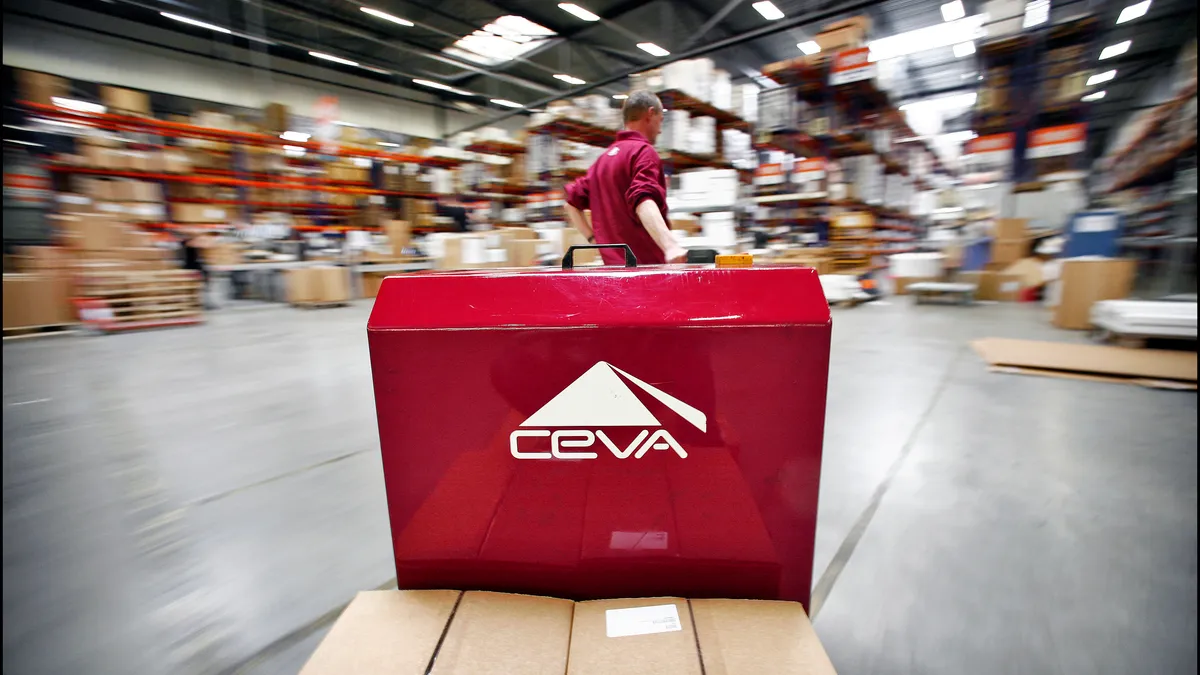Dive Brief:
- Ceva Logistics declared force majeure Thursday. "This means that it is temporarily relieved of its normal contractual obligations where these are rendered impossible or impracticable, due to the Coronavirus epidemic and its effects," reads the company's announcement.
- Ceva's declaration describes possible broad-based changes to service agreements including "any previously agreed rates and prices," and mentions possible additional surcharges. "Please rest assured that this step has only been taken due to the exceptional circumstances in which CEVA Logistics is currently operating," said the carrier's statement.
- The company's force majeure declaration "applies to all CEVA Services, including (but not limited to) its Air Freight, Ocean Freight, Ground Freight, Rail, Customs brokerage and Contract Logistics services," it said.
Dive Insight:
Ceva Logistics is not the first logistics firm to invoke the extreme provision of force majeure (DHL Global Forwarding has also declared it), reflecting the immense impact of the COVID-19 global pandemic on supply chains.
Even some ports have made similar declarations. Adani Ports and Special Economic Zone, the largest private port in India, declared force majeure at three facilities after the government ordered a nationwide lockdown. In that case, the port declared it was not responsible for damage claims or other charges from customers during this period. Nearly half a dozen ports in India have done the same, according to S&P Global Platts.
As force majeure declarations spread through the supply chain, the knock-on effects may intensify. Nearly three weeks ago, CMA CGM touted Ceva as an important tool in bolstering service continuity in light of the COVID-19 disruption, which at the time was largely confined to China. Ceva's announcement demonstrates the vast difference three weeks can make amid the global pandemic and rapidly changing situation.
The growing number of force majeure declarations requires shippers to fully understand the terms of their carrier and supplier contracts, according to Sarah Watt, senior director analyst with the Gartner Supply Chain practice.
"When the time for renewal comes, make sure that the organization is financially protected against similar situations that might occur in the future. Supply chains will not be the same after this event. There will be an increased focus on resilience, risk exposure and business continuity plans going forward," Watt said in a statement.














